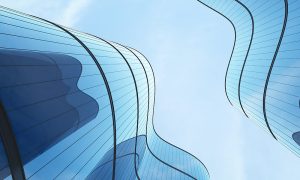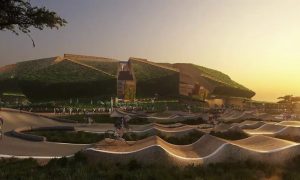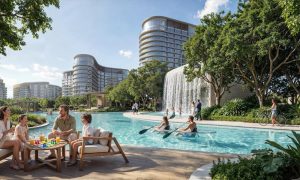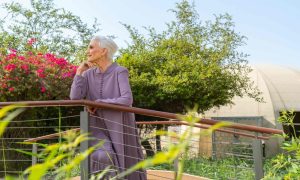2019 Aga Khan Award for Architecture shortlist announced
Short-listed projects in 16 different countries competing for $1 million in prize money
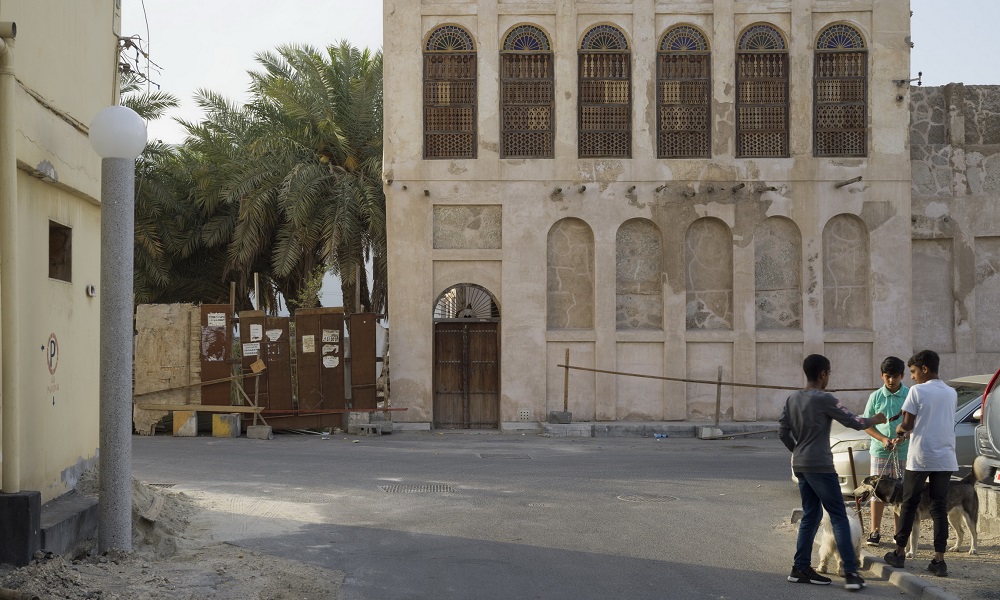
A number of GCC based projects have been short-listed for the prestigious 2019 Aga Khan Award for Architecture, following an announcement in Kazan, where an exhibition on the awards is being held.
Amongst the projects short-listed are Bahrain’s Revitalisation of Muharraq, Oman’s Muttrah Fish Market in Muscat, and Sharjah’s Wasit Wetland Centre. The short-listed projects are located in 16 different countries and will compete for $1 million in prize money.
The expo was inaugurated by Rustam Minnikhanov, President of the Republic of Tatarstan. He welcomed the decision of the Award’s Steering Committee to host the prestigious prize-giving ceremony in the historic city of Kazan, which is in the Republic of Tatarstan, Russian Federation, in the autumn of 2019.
In January, an independent master jury reviewed hundreds of nominations, with the 20 short-listed projects now undergoing rigorous investigations by a team of experts. These experts will visit and evaluate each project onsite, compiling detailed reports that will form the basis for the Master Jury’s selection of the eventual winners.
It should be noted that projects commissioned by the Aga Khan or any of the institutions of the Aga Khan Development Network (AKDN) are ineligible for the Award. To be eligible for consideration in the 2019 Award cycle, projects had to be completed between 1 January 2012 and 31 December 2017, and should have been in use for at least one year.
The 20 shortlisted projects are:
Bahrain
- Revitalisation of Muharraq, offers testimony on the pearl trade in the Arabian Peninsula over the centuries, especially when Bahrain thrived during the 19th century.
Bangladesh
- Arcadia Education Project, in South Kanarchor, a modular amphibious structure –incorporating space for a preschool, a hostel, a nursery and a vocational training centre – which is tied down on a riverine site that is often flooded for five months every year.
- Amber Denim Loom Shed, in Gazipur, a new design that combines traditional Bangladeshi residential architecture and contemporary elements in a large open space that accommodates machines, a buyers’ lounge, a dining space, a prayer area and washrooms.
China
- Courtyard House Plugin, in Beijing, a prefabricated modular system first developed as a prototype for installation within courtyard houses in the traditionally Muslim district of Dashilar, which is home to communities who do not have the means to renovate.
Djibouti
- Tadjourah SOS Children’s Village, a design based on a traditional medina and a layout of narrow streets that maximises shade and ventilation while providing shelter for the most vulnerable in society.
Ethiopia
- Warka Water, a prototype first implemented in Dorza, consists of an elegant triangular frame made out of local bamboo that encloses a thin polyester mesh – which captures droplets from high humidity in the air.
Iran
- Enghelab Street Rehabilitation, in Tehran, encompasses both the rehabilitation of the façades of 114 existing buildings and the creation of public cultural space between the national theatre and opera house.
Indonesia
- Taman Bima Microlibrary, in Bandung, aims to help combat Indonesia’s low literacy rates by adding a microlibrary above a pre-existing stage used for community events.
- AM Residence, in Jakarta, a design inspired by Indonesian vernacular stilt houses that favour natural ventilation; walls are minimised and windows kept simple for a seamless interior-to-exterior relationship.
Lebanon
- Jarahieh School, in Al-Marj, which provides educational facilities for children from 300 Syrian refugee families, creates a hub for community activities and offers the settlement’s only secure shelter in the event of snowstorm or earthquake.
Oman
- Muttrah Fish Market, in Muscat, which highlights the region’s trade and fishing traditions while also catering to Oman’s growing tourism industry.
Palestine
- Palestinian Museum, in Birzeit, which crowns a terraced hill overlooking the Mediterranean and is the recipient of the LEED Gold certification because of its sustainable construction.
Qatar
- Msheireb Museums, in Doha, which incorporates four historic courtyard houses dating from the early 20th century that together comprise an element of the cultural development of downtown Doha.
Russian Federation
- Tatarstan Public Spaces Development Programme, a programme that, to date, has improved 328 public spaces all over Tatarstan in areas ranging from major cities to small villages.
Senegal
- Alioune Diop University Lecture Building in Bambey, where a scarcity of resources led to the use of bioclimatic strategies: a large double roof canopy and latticework that avoids direct solar radiation but allows air to flow through it.
Turkey
- Beyazıt State Library Renovation, in Istanbul, the renovation of a 19th century library – housed within a 16th century building – that displays rare manuscripts and architectural heritage.
Uganda
- Ashinaga Uganda Dormitory, in Nansana, a residential school that prepares outstanding students from sub-Saharan Africa for entry into higher education.
United Arab Emirates
- Concrete at Alserkal Avenue, in Dubai, the major element of a former industrial complex that has been transformed into a cultural hub.
- Al Mureijah Art Spaces, in Sharjah, the renovation of five dilapidated buildings that offered the perfect urban and architectural setting for a contemporary art venue.
- Wasit Wetland Centre, in Sharjah, a design that transforms a wasteland into a wetland and functions as a catalyst for biodiversity and environmental education.



